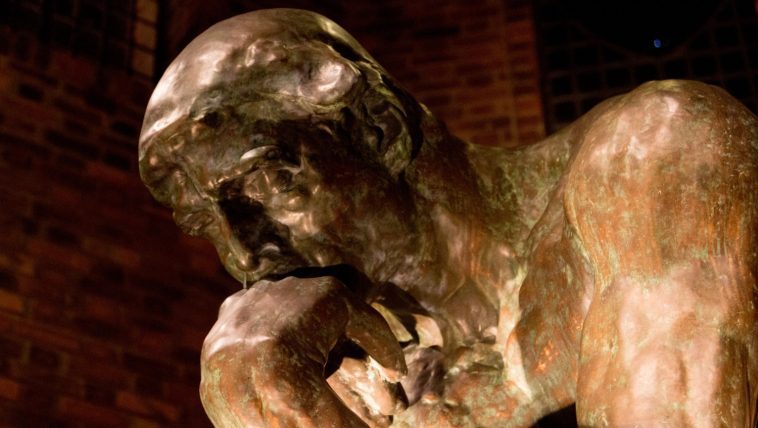[Originally published as the first section of Logic and Science]
The intersection of logic and science is tricky to navigate. While science at Christ’s College was not Charles Darwin’s major, as the “father” of evolution who at one time had ministry plans, navigating this intersection of conflicting forces determined the course of his theory of natural selection.
In a recent British poll, only the Bible was — narrowly — voted as more valuable to humanity than the book Origin of Species. Darwin argued that life on earth is united into a single tree of life by common descent, in other words, that all organisms are from one common ancestor.
However, a scientific consensus on the role of natural selection in evolution continues to escape the world’s largest science organizations. No other theory is more controversial than evolution. Whether the Origin of Species describes a scientifically valid natural law or merely a philosophical argument continues as the elephant in the room — as it was in 1859.
We can examine the changing perspectives on logic and science during the nineteenth century to gain insight into how Darwin navigated through this tricky intersection.
Developing the Principles of Science
The principles of science modernized Western civilization beginning with Polish astronomer Nicholas Copernicus (1473–1543). By applying inductive reasoning, Copernicus upended Aristotle‘s theory that the earth is the center of the universe (heliocentrism) and launched the scientific revolution.
Established in 1660 by King Charles II, the Royal Society of London has continuously served ever since to advance the principles of science, what is known as the scientific method. Science’s most influential contributor, Isaac Newton (1642–1727), served as president of the Society for over 20 years.
Charles Darwin was elected as a member of the Royal Society in 1839, and they awarded him the Royal Medal in 1853 for his scientific achievements in the Geological Observations on South America (1846) and Fossil Cirripedia of Great Britain, Section Lepadidae, Monograph of the Circhipeda (1851). Neither work inferred or mentioned evolution.
The Society characterized its purpose by adopting the official Latin motto of “Nullius in Verba,” meaning “Take nobody’s word for it.” As the Society explains, the meaning of the motto is:
To withstand the domination of authority and to verify all statements by an appeal to facts determined by experiment.
The Royal Society wanted to prioritize facts and experimentation — a process known as inductive reasoning — over preconceived concepts, premises, ideas, or philosophy. This process, credited to Marcus Tullius Cicero, a leading Roman intellectual, originated from the Latin word inducere, meaning to “lead” or “introduce.”
Inductive reasoning was Darwin’s approach early in his career. As Darwin explained in his Autobiography:
My first notebook was opened in July 1837. I worked on true Baconian principles and without any theory collected facts on a wholesale scale.
These principles, developed by Francis Bacon, an English philosopher, and statesman, established the guiding parameters of the scientific method throughout the stages of the scientific revolution. In 1838, however, Darwin switched to the deductive reasoning approach of influential English economist Robert Malthus, noting in his Autobiography:
In October 1838, that is, fifteen months after I had begun my systematic inquiry, I happened to read for amusement Malthus on Population… Here, then, I had, at last, got a theory by which to work.
The main difference between inductive and deductive reasoning is that inductive reasoning aims to develop a theory while deductive reasoning tests an existing theory. Inductive reasoning moves from specific observations to broad generalizations; deductive reasoning reverses the order.
Logic and Science Crosswinds
On returning from his five-year global voyage on the HMS Beagle, Darwin’s search for a scientific explanation for the origin of species encountered crosswind pressures from the increasingly popular Age of Enlightenment movement — a logical dilemma between science and philosophy.
In his grandfather, Erasmus Darwin’s, footsteps, Charles gradually drifted with the crosswinds, departing from the scientific method to introduce his theory of natural selection. Darwin justified his reasons in Origin of Species by arguing:
On the view that each species has been independently created, with all its parts as we now see them, I can see no explanation. But on the view that groups of species are descended from some other species, and have been modified through natural selection, I think we can obtain some light.
Eventually, natural selection emerged as Darwin’s deductive premise allowing him to undermine the biblical account, but not because of any scientifically valid evidence. In the Descent of Man (1871), Darwin reaffirms his motivation as philosophical, not scientific:
If I have erred in giving to natural selection great power, which I am very far from admitting, or in having exaggerated its power, which is in itself probable, I have at least, as I hope, done good service in aiding to overthrow the dogma of separate creation.
Natural selection justified Darwin’s necessity for a “natural” mechanism to justify his premise to overthrow the biblical account. In his Autobiography, Darwin explains how he gradually gained this new perspective of the biblical account as a “false” history:
I had gradually come by this time to see the Old Testament, from its manifestly false history of the world.
The pervasiveness of his new premise was wide ranging. Contrary to his ministry plans as a graduate of Christ’s College at Cambridge University, Darwin shockingly concluded:
Thus disbelief crept over me at a very slow rate, but at least it was complete. The rate was so slow that I felt no distress and have never since doubted even for a single second that my conclusion was correct. I can hardly see how anyone ought to wish Christianity to be true, for if so, the plain language of the text seems to show that the men who do not believe, and this would include my father, brother, and almost all my best friends, will be everlasting punishment. This is a damnable doctrine.
As enlightenment continued to undermine the authority of the biblical account, Darwin increasingly pivoted to a natural explanation for life — evolution.
The Origin of Species
Enlightenment focused on free speech and thought, which re-energized the widespread resolve among naturalists to develop logical explanations for all of nature’s mysteries. The Origin of Species was an immediate success: all 1,250 printed copies of the book sold out on the first day, with 3,800 copies sold during its first year of publication. As Darwin noted:
[It] has sometimes been said that the success of the Origin proved “hat the subject was in the air… men’s minds were prepared for it.”
Since Darwin’s wife, Emma, was far from declaring Christianity a “damnable doctrine,” he assured her his work was a “considerable step in science.” Yet, he never publicly stated or implied that the Origin of Species was founded on scientific principles.
Amongst his colleagues, Darwin was transparent. in the year before publication in 1859, Darwin explained to American naturalist Asa Gray, author of Gray’s Anatomy, that his new approach did not correspond to the principles of science:
I am quite conscious that my speculations run quite beyond the bounds of true science.
Darwin called the Origin of Species “one long argument from the beginning to the end,” the antithesis of a scientific treatise. While the book has one illustrative diagram, there are no tables or graphs with “facts.”
Although the Origin of Species emerged as a global phenomenon, the Royal Society never awarded Darwin a Royal Medal again; Darwin had abandoned the inductive “bounds of science” for deductive reasoning.







